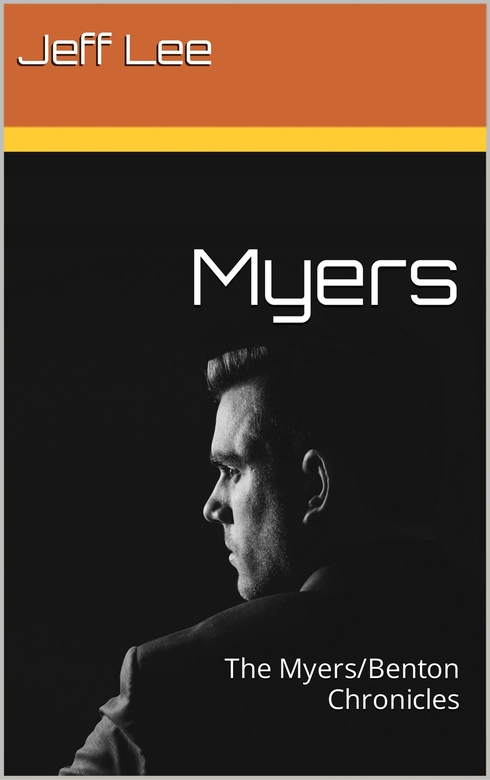
A gripping mystery that reveals its villain long before the final page, Myers by Jeff Lee is a character-driven thriller that exposes the grim repercussions of trauma and war, showing how the severe residual trauma and haunting memories of survivors can have their own terrible repercussions.
Plunging readers into a wind-blown, easily forgotten part of America, this novel is an exposé of violence, history, and family. The story pits two such souls against each other, the town’s police chief, Karl Myers, and Jerry Peterman – a soldier who never really stopped fighting, and who has forgotten any language but domination. Myers has been shaped by his time in the military too, and must quell his own violent demons triggered by a town full of Whites Only signs.
The relationship between Jerry and his son Greg is hard to witness from the very first scene, in which Greg’s eagerness to please, buttressed by a quiet nameless fear, is brushed aside and battered by his father’s unwavering tongue for discipline and degradation. The treatment of Vivian at Jerry’s hand, and belt, is even more gruesome and cruel, defined by relentless psychological abuse that his wife has numbly accepted as her fate.
Demonstrating the author’s flexible pen to capture authentic tones of childhood, Greg, Moses, and Pattie whimsically leap off the page, but their lives teeter dangerously on the edge of innocence, as they wrestle with early and painful understandings of racism, morality, and loyalty. Moses’ death is the bloody heart of this novel’s premise, and as is the case for many great novels, readers are given far greater access to this piece of action, giving the book both structure and poetry.
Lee’s masterful draftsmanship stretches this dense plot in a number of different directions, just as the bonds of family are pulled to the point of breaking. He depicts the historical context such that every interaction holds an ominous weight, while the insightful narrative reflections feel visceral and revelatory. Additionally, the novel is an exceptionally well-penned police procedural, with all the elements of investigations, red herrings, and tense standoffs that fans of the genre expect. At times, it seems like the clues should more obviously solve the case for Myers, but the tension is still gripping.
While Lee’s language choices are dextrous and clever, the writing may at times be more purple than necessary. By packing every sentence with multiple adjectives and richly painted moments, the reader isn’t given room to imagine moments for themselves, or connect the dots of emotion. It can also be somewhat tiring, regardless of how well-crafted the prose happens to be. Some of the conversations are similarly explicit, dragging on past the point of purpose, and while these interactions do add to the colloquial flavor of the novel, there is still chaff to separate from the wheat.
As a whole, this is a strikingly told novel, by an obviously talented author, that places a lens on an American era with so much left to teach us.
Book Links
STAR RATING
Design
Content
Editing
Get an Editorial Review | Get Amazon Sales & Reviews | Get Edited | Get Beta Readers | Enter the SPR Book Awards | Other Marketing Services






















Leave A Comment